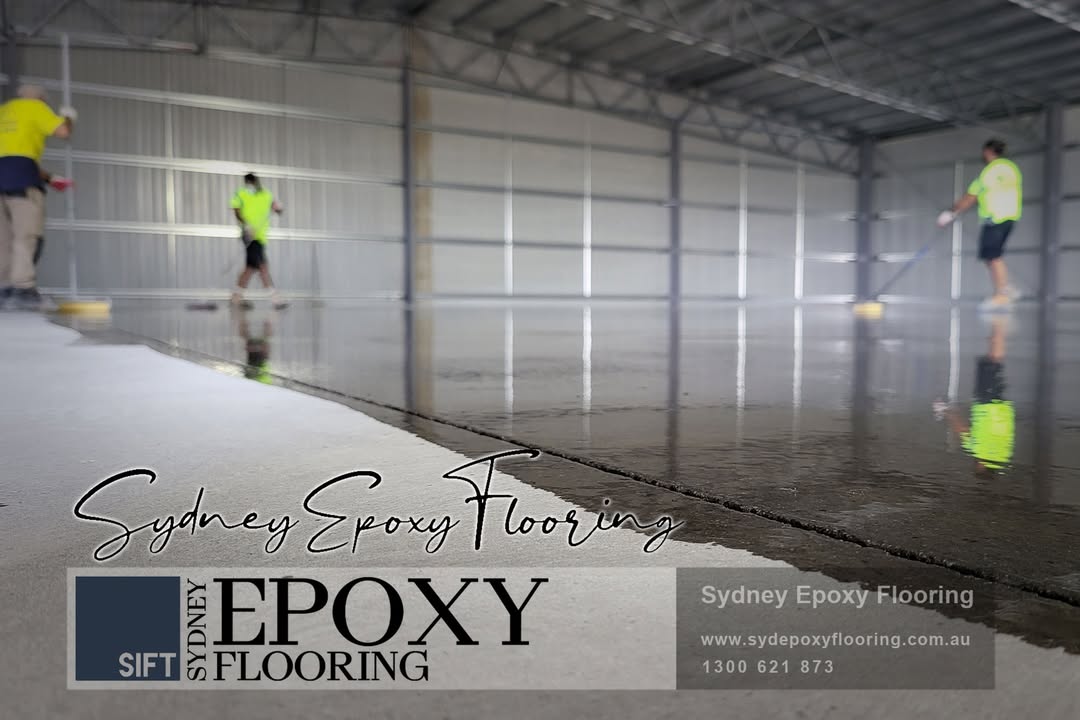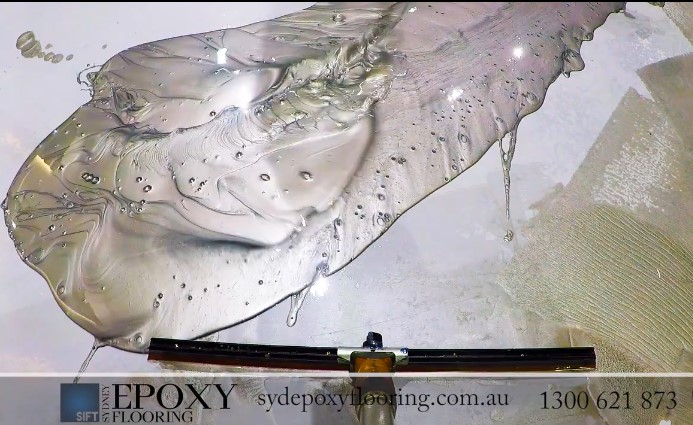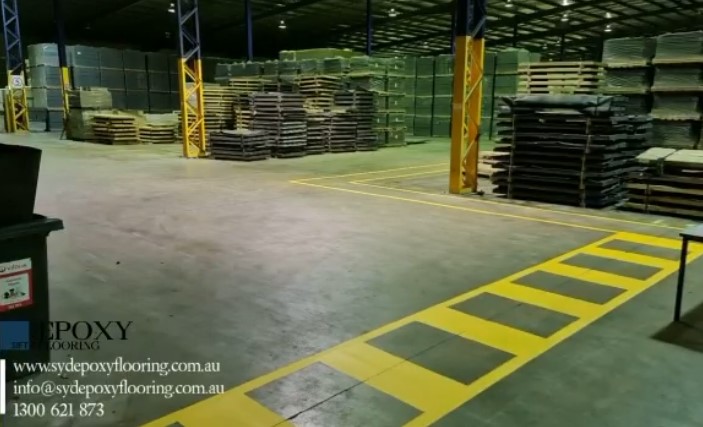When it comes to maintaining a safe and efficient commercial kitchen, Commercial Kitchen Epoxy Flooring in Sydney has become the go-to solution for many businesses. Kitchens are fast-paced environments where spills, heat, and heavy foot traffic are constant challenges. Slippery floors increase the risk of accidents and injuries, which can lead to costly workers’ compensation claims and operational downtime. Installing epoxy flooring addresses these issues head-on, providing a durable, non-slip, hygienic, and easy-to-maintain surface that meets Sydney’s strict health and safety standards.
In this article, we’ll explore why epoxy flooring is the ultimate fix for slippery and unsafe workspaces in Sydney’s commercial kitchens, the benefits it offers, the installation process, and how it can improve your business operations.
What Is Commercial Kitchen Epoxy Flooring?
Epoxy flooring is a resin-based coating applied to concrete or other surfaces that hardens into a seamless, highly durable layer. Unlike traditional floor coverings such as tiles or vinyl, epoxy creates a smooth, impermeable surface that resists cracking, staining, and slipping.
In commercial kitchens, this means that spills—whether water, oil, or cleaning chemicals—won’t penetrate the floor or create dangerous hazards. The ability to customize epoxy with anti-slip aggregates makes it ideal for maintaining safety in wet and greasy environments common in Sydney’s kitchens.
Why Slippery Floors Are a Serious Risk in Commercial Kitchens
Slippery floors rank among the top causes of workplace injuries in the food service sector. In Sydney’s commercial kitchens, spills are frequent due to the nature of food preparation and cleaning processes. Common flooring options like tiles can become slick when wet and often have grout lines where bacteria and mold grow, posing hygiene risks.
These hazards create multiple problems:
- Increased risk of slips and falls, leading to staff injury
- Legal liabilities and workers’ compensation claims
- Possible health department violations
- Operational disruptions due to accidents or repair work
Epoxy flooring tackles these problems by creating a surface that enhances grip, is easier to clean, and resists bacteria buildup.
Benefits of Commercial Kitchen Epoxy Flooring in Sydney
1. Superior Slip Resistance
One of the most important safety features of commercial kitchen epoxy flooring is its ability to be customized with non-slip aggregates such as silica sand or quartz. This significantly improves traction, even in wet or oily conditions, reducing the likelihood of slip-and-fall accidents.
2. Seamless and Hygienic Surface
Epoxy floors create a seamless, uninterrupted surface without any cracks or grout lines. This eliminates the places where dirt, bacteria, and mold can hide. The surface is resistant to stains and easy to sanitize with standard cleaning agents, ensuring compliance with the NSW Food Authority’s hygiene regulations.
3. Durable and Long-Lasting
Commercial kitchens endure heavy foot traffic, dropped utensils, heat, and chemical spills. Epoxy flooring can withstand these tough conditions without cracking or peeling. Its durability means fewer repairs and lower maintenance costs over time.
4. Fast Installation and Minimal Downtime
Professional epoxy flooring contractors in Sydney can install these systems quickly, often curing overnight or within a couple of days. This means minimal disruption to your kitchen operations, allowing you to get back to business faster.
5. Customizable Appearance
Epoxy coatings come in various finishes and colors, allowing you to tailor the look to your brand or workspace needs. Safety markings, logos, or zoning lines can also be embedded within the floor, improving workflow and professionalism.
How Commercial Kitchen Epoxy Flooring Enhances Safety
Safety in the kitchen is non-negotiable. The anti-slip properties of epoxy flooring reduce accidents by providing a textured surface that improves grip. Unlike tiles, epoxy floors don’t have loose grout lines or cracks where water pools. This decreases the risk of slips and falls, which are among the top causes of workplace injuries in hospitality.
In addition, epoxy’s resistance to heat and chemicals means that spills don’t degrade the surface or create hazardous uneven patches. This consistent surface condition helps keep employees safe even during peak business hours.
The Installation Process for Commercial Kitchen Epoxy Flooring in Sydney
Installing epoxy flooring involves several key steps to ensure a strong, durable finish:
1. Surface Preparation
The current flooring needs to be meticulously cleaned and prepped, typically using grinding or shot blasting techniques to eliminate contaminants and create a textured surface that ensures proper adhesion of the epoxy coating.
2. Primer Application
A primer coat is applied to seal the surface and enhance the bonding between the concrete and the epoxy layer.
3. Base Coat Application
The base epoxy layer is laid down, forming the primary structural surface.
4. Aggregate Broadcast
If slip resistance is required, non-slip aggregates are broadcast over the base coat while it is still wet.
5. Top Coat Application
A clear or colored top coat seals in the aggregates and adds additional protection.
6. Curing
Depending on the system used, the floor will cure within 12 to 48 hours before it’s ready for full use.
Cost Considerations: Is Epoxy Flooring Worth It?
While the initial cost of installing commercial kitchen epoxy flooring in Sydney may be higher than traditional flooring options, the long-term benefits and cost savings are substantial. Benefits include:
- Reduced risk of injury and liability costs
- Lower maintenance and repair expenses
- Longer lifespan (10+ years) without major repairs
- Compliance with health and safety regulations
- Improved kitchen efficiency and staff morale
When you factor in potential workers’ compensation claims or business downtime from accidents, epoxy flooring quickly proves to be a valuable investment.
Who Should Consider Commercial Kitchen Epoxy Flooring in Sydney?
Any business operating a commercial kitchen can benefit from epoxy flooring, including:
- Restaurants and cafes
- Catering companies
- Hotels and resorts
- Hospitals and aged care facilities
- Schools and universities
- Food processing and manufacturing plants
- Cloud kitchens and meal prep services
Sydney’s growing hospitality sector demands reliable, safe, and hygienic flooring solutions, making epoxy flooring a popular choice across the board.
Frequently Asked Questions
Q1: How long does commercial kitchen epoxy flooring last?
A: When installed correctly and maintained regularly, epoxy flooring in commercial kitchens can provide durable performance for 10 to 15 years or even longer.
Q2: Does epoxy flooring provide slip resistance in wet conditions?
A: Yes. Epoxy flooring can be customized with non-slip additives that significantly reduce slip hazards even in wet or greasy conditions.
Q3: How long does the installation take?
A: Typically, professional installers complete the job within 2 to 3 days, including surface prep and curing time.
Q4: Can epoxy flooring handle heat and heavy equipment?
A: Yes. Epoxy floors offer exceptional resistance to high temperatures, constant foot traffic, impact from dropped tools, and exposure to harsh chemicals.
Q5: Is epoxy flooring easy to clean?
A: Absolutely. The seamless surface prevents dirt and bacteria buildup and can be cleaned quickly using standard commercial cleaning agents.
Get in Touch for Expert Epoxy Flooring Solutions in Sydney
Ready to transform your commercial kitchen floor into a safe, durable, and hygienic workspace? Our team of experienced epoxy flooring specialists in Sydney is here to help.
📞Phone: 1300 621 873
📧Email: info@sydepoxyflooring.com.au
📍Address: Unit 123/7 Hoyle Ave, Castle Hill, NSW 2154, Australia
🌐Website: sydepoxyflooring.com.au




